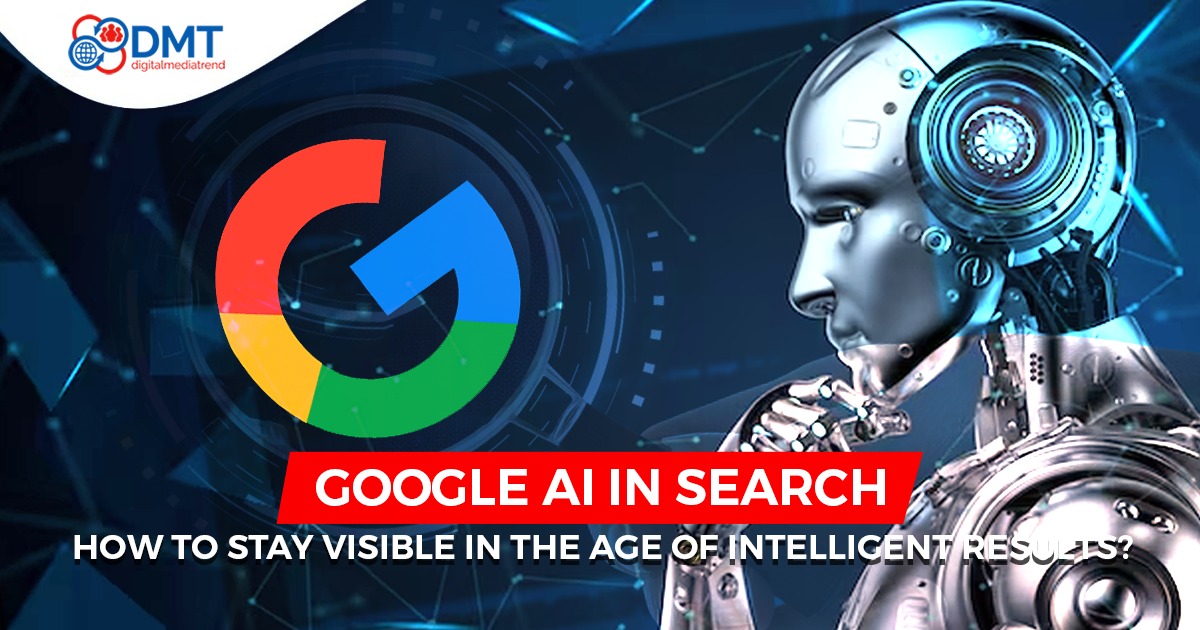In the ever-evolving world of digital marketing, staying visible on Google Search has become more challenging—and more sophisticated—than ever. As Google shifts its algorithm towards AI-powered features like AI Overviews, Search Generative Experience (SGE), MUM (Multitask Unified Model), and BERT (Bidirectional Encoder Representations from Transformers), SEO professionals must pivot from traditional keyword-based strategies to intelligent, intent-driven optimization.
In this article, we’ll explore how Google’s AI is changing search behavior, what this means for your visibility, and how to track and optimize your content for AI-powered SERPs.

What Is Google AI in Search?
Google AI in Search refers to the use of machine learning and artificial intelligence technologies that analyze content, predict user intent, and serve more contextual, personalized, and intelligent search results.
Some key AI-driven features include:
- AI Overviews (formerly SGE): AI-generated summaries at the top of search results.
- MUM: Processes images, video, and text together to understand complex queries.
- BERT: Helps Google understand the context of words in a search query.
- RankBrain: Uses AI to better understand vague or unfamiliar queries.
How to Track AI-Powered Features in Google Search
Tracking AI-generated content and search features requires more than just traditional keyword ranking tools. Here’s how you can stay on top:
- Use SEO Tools that Track SERP Features
Tools like Semrush, Ahrefs offer SERP feature tracking, including AI answers, featured snippets, People Also Ask, and more.
- Monitor Google Search Console Closely
GSC may not yet show direct data on AI Overviews, but it still provides valuable metrics like impressions, CTR, and ranking volatility, which help track visibility changes.
- Use Visual SERP Monitoring Tools
Use tools like Surfer SEO, SEOClarity, or RankRanger to get snapshots of what the SERPs actually look like, including how often your brand appears in AI responses or summaries.
- Perform Manual SERP Checks
Regularly search your target queries in incognito mode to observe whether AI snippets are replacing traditional rankings—and whether your site is being mentioned.
- Leverage Google’s AI Guidelines & Announcements
Stay updated with the Google Search Central Blog to learn about new AI-related features and how they affect rankings.
Strategies to Stay Visible in AI-Driven Search
- Optimize for Search Intent, Not Just Keywords
AI rewards content that truly satisfies user intent. Use tools like AlsoAsked, AnswerThePublic, and Google’s People Also Ask to understand user queries more deeply.
- Structure Content for Featured Snippets and AI Overviews
AI overviews often pull from well-structured content. Use:
- Clear headings (H2, H3)
- Bullet points and numbered lists
- FAQ sections
- Definitions, how-tos, and direct answers
- Embrace Topical Authority
Instead of writing one or two isolated blog posts, build clusters of content around a specific topic. This signals expertise and increases the chances of your site being chosen for AI snippets.
Example:
At DMT Lahore, we don’t just have one page for “SEO Training.” We create supporting blogs like:
- “Why Practical SEO Training Beats Theory”
- “Top SEO Tools Students Learn at DMT Lahore”
- “How SEO Training Boosted My Freelance Career – A Student Story”
This approach builds topical authority, which AI respects.
- Focus on E-E-A-T
Google AI looks for Experience, Expertise, Authoritativeness, and Trustworthiness. Make sure your:
- Author bios are visible and credible
- Blog posts cite trustworthy sources
- Business has genuine reviews and testimonials
- Contact information is consistent
- Use Schema Markup
AI loves structured data. Use schema to mark up your:
- FAQs
- How-to guides
- Reviews
- Course listings
This helps AI (and traditional search bots) understand your content better.
- Create Multimedia Content
Google MUM understands text, images, and video. Include:
- Infographics
- How-to videos
- Slide decks or downloadable PDFs
This not only boosts engagement but also aligns your content with Google’s multimodal understanding.
- Improve Page Experience
AI and traditional algorithms still rely heavily on user experience metrics. Focus on:
- Fast loading speed
- Mobile responsiveness
- Easy navigation
- Clear calls-to-action (CTAs)
Google’s Core Web Vitals are still critical.
Example from DMT Lahore’s Own SEO Strategy
At DMT Lahore, we applied AI-focused SEO strategies to our blog and training pages. By restructuring our content to target long-tail, intent-driven queries and optimizing for snippet visibility, we observed:
- 35% increase in organic impressions
- 40% higher CTR from featured snippet placements
- 25% improvement in keyword rankings for AI-targeted content
Our “SEO Training with Internship in Lahore” page even started showing up in AI Overviews for related queries!
As Google becomes more intelligent, so must your SEO. It’s not just about keywords anymore—it’s about understanding user behavior, providing value, and structuring content that AI can easily read and recommend.
Whether you’re a blogger, a business, or a digital marketing student, adapting to Google’s AI-driven search landscape is no longer optional—it’s essential.
At DMT Lahore, we prepare our students and clients to master modern SEO techniques that align with AI trends and future-proof their online visibility.
FAQs – Google AI in Search
- What is Google AI Overview in Search?
Google AI Overview is a feature that shows AI-generated summaries at the top of the search results, based on multiple sources across the web.
- Can I rank in Google AI Overviews?
Yes, if your content is highly relevant, structured well, and demonstrates E-E-A-T, you can be featured in AI Overviews.
- Are traditional SEO strategies still relevant?
Yes, but they need to be adapted. Keyword optimization, backlinks, and on-page SEO still matter, but now you must also focus on intent, structure, and content quality.
- How can I track if my content is used in AI summaries?
There’s no direct tracking yet, but you can perform manual checks, monitor impressions in Search Console, and track SERP features using SEO tools.
- How does DMT Lahore teach AI-driven SEO?
Our SEO training covers modern techniques including optimizing for featured snippets, structured data, E-E-A-T, and AI integration to help students rank smarter—not just harder.

